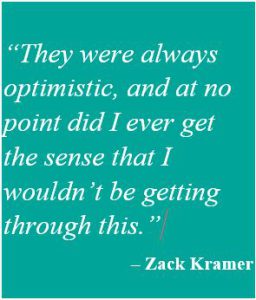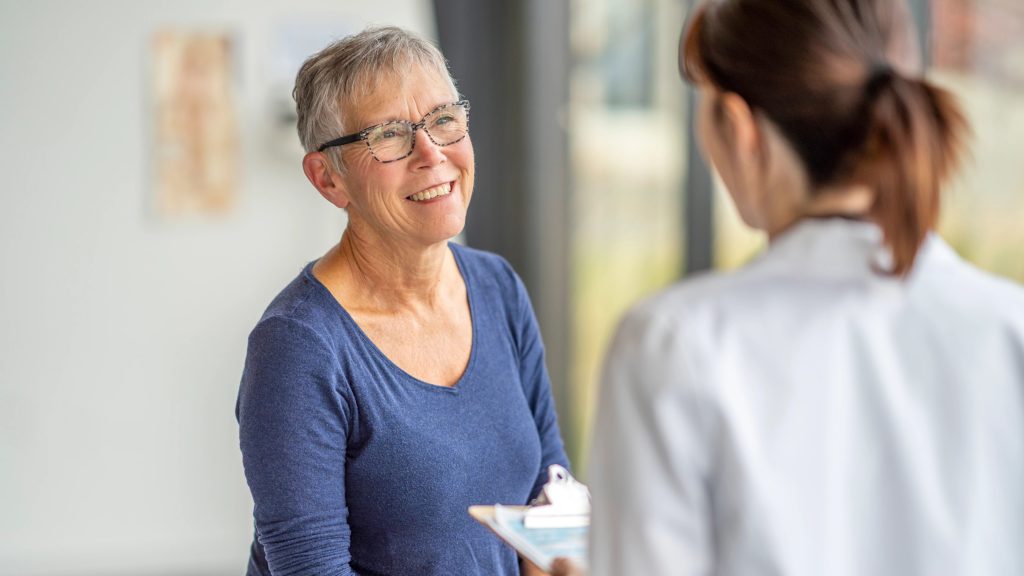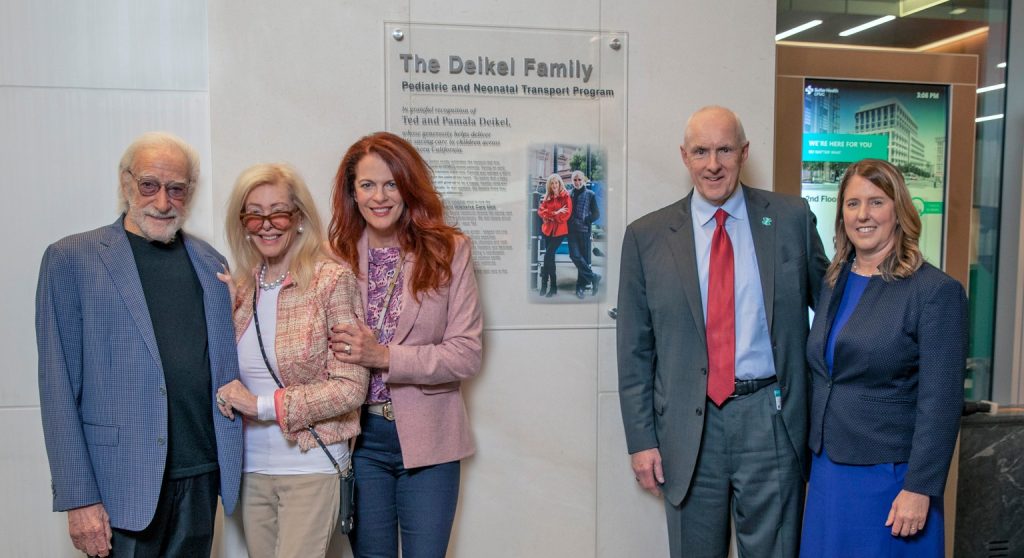By Nicole Young, Vitals contributor
In early 2021, frequent upset stomach and troublesome trips to the bathroom prompted Zack Kramer to seek medical attention.
“Many things were happening at the same time, COVID, a stressful job, but it was becoming a bigger deal,” he explained.
When Kramer’s symptoms first began, the Santa Barbara, Calif. dad of three daughters was younger than the recommended age 50 to receive a colonoscopy. (Now, the recommended age is 45.) When he scheduled his colonoscopy at age 47, he never would have guessed the discovery of two tumors.
Kramer’s story is part of a concerning trend. Research published by the American Cancer Society in January notes a rapid increase in colorectal cancer rates among people in their 20s, 30s and 40s. Meanwhile colorectal cancer rates in people over the age of 65 continue to decline. The uptick has serious consequences, but with promising treatments and compassionate, skilled clinicians, patients like Kramer have a fighting chance to regain their health.
Following the screening, Kramer immediately connected with Dr. Cristina Harnsberger, an experienced, fellowship-trained colorectal surgeon at Sansum Clinic, a 103-year-old nonprofit outpatient health care organization now part of Sutter Health’s Greater Central Coast market. Dr. Harnsberger recommended immediate surgery due to the complexity of the case, one stage 3 tumor in the colon, another in the rectum.
 “You really don’t want to be unique when it comes to this stuff,” Kramer admits. “But I loved Dr. Harnsberger. She was optimistic and honest. I knew this would be an arduous process, but she put me at ease and gave me some hope.”
“You really don’t want to be unique when it comes to this stuff,” Kramer admits. “But I loved Dr. Harnsberger. She was optimistic and honest. I knew this would be an arduous process, but she put me at ease and gave me some hope.”
Kramer’s first surgery dealt with blockage in his colon so he could start eating regular food again and begin his cancer treatment. Acclimating to the major lifestyle changes afterwards was tough. Work stopped, his regular exercise and golf routine slowed. His full-time occupation became recovery, so he could continue to fight his cancer.
“It took me some time, and adjusting to that was maybe the hardest part,” he said. “It’s normalizing what your reality is like, and not letting that rule your life.”
Shortly after the first surgery, Kramer met with medical oncologist Dr. Mukul Gupta at Ridley-Tree Cancer Center, now also part of Sutter Health’s Greater Central Coast Market. Dr. Gupta recommended a multi-layered approach, starting with chemotherapy, followed by radiation. The goal was to shrink both tumors prior to a second operation.
Kramer felt well-prepared for what the next four months of treatment and close monitoring would look like. He also appreciated the added doses of humor Dr. Gupta provided.
“Dr. Gupta is funnier than he likes to let on,” Kramer divulged, “which sometimes was what I really needed.”

Ridley-Tree Cancer Center at Sansum Clinic in Santa Barbara.
Kramer also received guidance via other patient support services at Ridley-Tree Cancer Center. Genetic testing confirmed his cancer was unlikely to be hereditary, and that he did not carry a gene change or mutation which could raise his risk for colorectal cancer. This put him at greater ease for his daughters, considering he had lost his mother to breast cancer and his sister to a brain tumor. A specialized dietitian nutritionist also helped educate him on how to adjust his diet to minimize any side effects from treatment. The care and collaboration between his clinicians gave him even greater comfort.
“The intimacy of the place [helps you] not [feel] like a number. [It’s good] having enough repetition in the doctors you see and the nurses you interact with. It’s nice to feel like they actually know you and care about you, and I felt that so much while I was here,” he said.
In the weeks between the end of chemotherapy and the start of radiation therapy, Kramer eased back into his work life. He began riding his Peloton bike, weightlifting and yoga. He took up Qigong and meditation to calm his mind so he could sleep better and to settle himself before his daily radiation treatments.
“It’s so important to get your body in the right state of relaxation, and not freak yourself out with anxiety all the time, so I really tried to focus on that,” he said.
Healing the body and mind as you move through chronic conditions is a concept where Kramer and radiation oncologist Dr. George Cheng bonded. While Dr. Cheng counsels Ridley-Tree Cancer Center patients on their radiation treatment, he also has special training through the Society of Metabolic Health Practitioners, and is a passionate advocate for achieving optimal health through incremental lifestyle changes. Dr. Cheng’s depth of knowledge about radiation oncology, combined with his strong belief in whole-person care to achieve better health, was a perfect fit for Kramer.
“There’s so much conflicting data out there. Having doctors who you trust, who can weed through that for you, was so helpful,” Kramer said. “They were always optimistic, and at no point did I ever get the sense that I wouldn’t be getting through this.”

The Kramer family spends quality time together during a visit to an area vineyard.
That day finally arrived. Testing following Kramer’s radiation therapy showed the tumors had shrunk. Several months later he had built up his physical and mental strength enough to undergo two lengthy, but successful surgeries performed by Dr. Harnsberger.
More than 12 months past Kramer’s last treatment and cancer free, moments with family and friends still produce strong feelings of gratitude. He admits he wondered whether he’d ever get back to the simple yet beautiful parts of life.
“Based on the testing, it’s about one in five, one in six that [cancer] comes back. But I am a year through now. If I can get through five years, you can reset the clock. And I think the prognosis is good,” he said.





